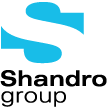What is an HRA (Health Reimbursement Arrangement)?
A Health Reimbursement Arrangement (HRA) is an employer-funded health benefit plan that reimburses employees for qualified medical expenses, including health insurance premiums, out-of-pocket medical costs, and other healthcare-related expenses. Unlike a Health Savings Account (HSA) or Flexible Spending Account (FSA), an HRA is solely funded by the employer, and employees cannot contribute to it. Employers set aside a specified amount of money in the HRA each year, which employees can use for eligible healthcare expenses.
How Does an HRA Work?
With an HRA, the employer designates a reimbursement amount for each employee, and these funds are available to cover approved healthcare expenses. Employees submit claims for their out-of-pocket costs, and the employer reimburses them up to the designated annual amount.
Employers have significant flexibility with HRAs—they can decide which medical expenses are eligible for reimbursement and determine the maximum yearly allowance. This arrangement allows employees to pay for necessary healthcare services without directly affecting their take-home pay.
Key Features of HRAs
- Employer-Funded: Only employers contribute to the HRA, making it different from HSAs or FSAs, which can involve employee contributions.
- Reimbursement-Based: Employees pay for qualified expenses upfront and then receive reimbursement from their employer.
- Tax-Free Benefits: Reimbursements from an HRA are typically tax-free for both the employee and employer.
- Unused Funds: Employers may choose to allow unused HRA funds to roll over to the next year, but they are not required to do so. Unlike an HSA, employees don’t own the funds in the HRA—funds are available as long as they are employed by the company.
Types of HRAs
There are several types of HRAs, each designed to suit different healthcare and financial needs. Here are the most common types:
1. Qualified Small Employer HRA (QSEHRA)
- Designed for small businesses with fewer than 50 full-time employees.
- Allows employers to reimburse employees for individual health insurance premiums and other qualified medical expenses.
- Tax-free for both employer and employee if used for qualified expenses.
2. Individual Coverage HRA (ICHRA)
- Allows employers to reimburse employees for individual health insurance policies instead of offering a traditional group health plan.
- Flexible, allowing employers to vary the reimbursement amount based on factors like age and family size.
- Employees must have individual health insurance coverage to use this type of HRA.
3. Integrated HRA (or Group Coverage HRA)
- Used alongside a traditional group health insurance plan.
- Typically covers out-of-pocket costs, such as deductibles, copayments, and coinsurance.
- Often paired with a high-deductible health plan to help employees manage out-of-pocket expenses.
4. Retiree HRA
- Specifically designed to help cover medical expenses for retirees.
- Funded by employers as a benefit for retired employees.
- May cover expenses such as Medicare premiums, prescription drugs, and other out-of-pocket costs.
Benefits of HRAs for Employers and Employees
Benefits for Employers
- Cost Control: Employers can set a fixed annual allowance, helping to control healthcare costs.
- Flexibility: HRAs provide flexibility in terms of which expenses are reimbursed, allowing employers to design a plan that suits their budget and workforce needs.
- Tax Advantages: HRA reimbursements are tax-deductible for employers and tax-free for employees, providing financial benefits on both sides.
Benefits for Employees
- Tax-Free Reimbursement: Employees receive reimbursements for qualified medical expenses tax-free, helping to reduce overall healthcare costs.
- Increased Healthcare Choice: With certain HRAs like the ICHRA, employees can choose their own individual health insurance plan, giving them more control over their healthcare coverage.
- Flexible Expense Coverage: HRAs cover a broad range of medical expenses, including deductibles, copayments, and premiums, making healthcare more affordable for employees.
Eligible Expenses Covered by an HRA
An HRA can be used to cover a wide range of eligible healthcare expenses, including but not limited to:
- Health insurance premiums (for individual coverage HRAs like QSEHRA and ICHRA)
- Copayments and deductibles on health insurance plans
- Prescription medications
- Medical equipment and supplies
- Vision and dental care
- Mental health services
Employers may choose to customize eligible expenses for reimbursement, so it’s essential for employees to understand which costs are covered under their specific HRA.
How to Use an HRA
Using an HRA is a straightforward process:
- Incur a Qualified Medical Expense: Employees pay out-of-pocket for an eligible healthcare expense, such as a doctor’s visit or prescription.
- Submit a Claim for Reimbursement: Employees submit receipts or other proof of payment to their employer or HRA administrator.
- Receive Reimbursement: Once approved, the employer reimburses the employee up to the annual HRA limit.
Many companies use third-party administrators to handle HRA claims, simplifying the process for both employers and employees.
HRA vs. HSA: Key Differences
While both HRAs and Health Savings Accounts (HSAs) offer tax-free savings for healthcare expenses, there are some key differences:
- Funding: HRAs are funded solely by employers, while HSAs allow contributions from both employers and employees.
- Portability: HSA funds belong to the employee, meaning they keep the money even if they change jobs. HRA funds remain with the employer.
- Eligibility: HSAs require enrollment in a high-deductible health plan, while HRAs have no such requirement, though some HRAs are paired with specific types of health plans.
Is an HRA Right for You?
An HRA can be a valuable benefit, especially for employees in need of flexible coverage for medical expenses. For employers, HRAs offer an affordable way to support employees’ health needs without the high costs of traditional insurance.
For Idaho residents or employers looking to explore HRAs or other health insurance options, Consult with a Health Insurance Expert Today at The Shandro Group. Our team can help you understand the best options for your healthcare needs, ensuring you get the most out of your benefits.








 Connect With Us on Facebook
Connect With Us on Facebook